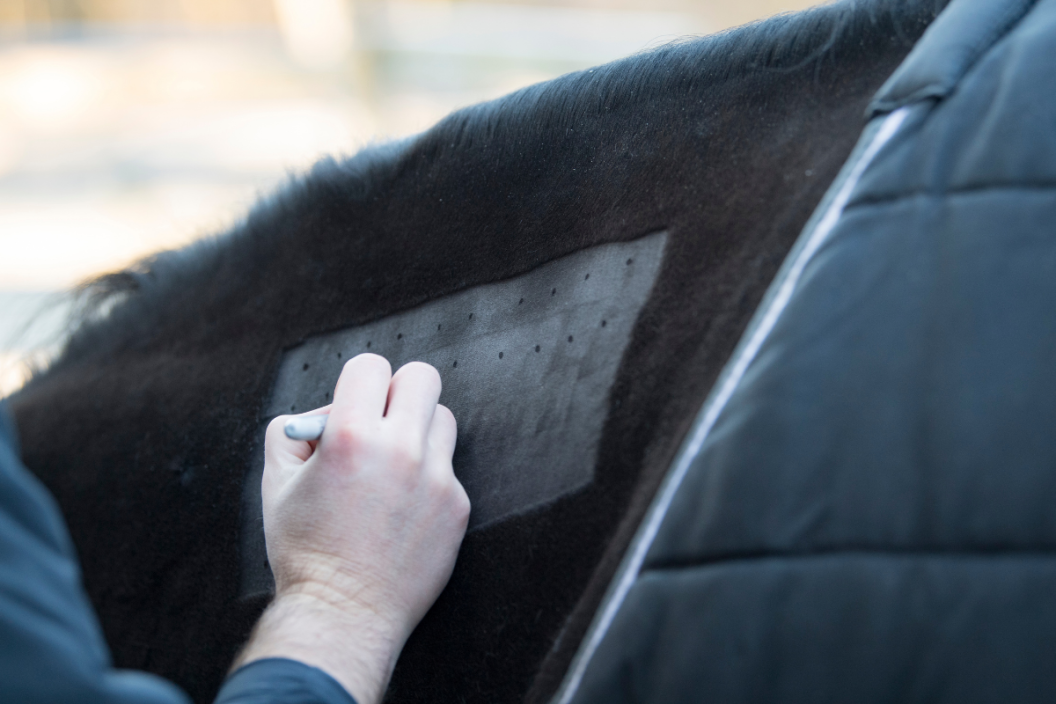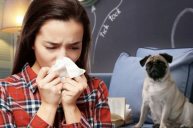Yes: Horses suffer from allergies, too. The good news is you can help your horse cope!
Horses can react to allergens just like other pets can. For example, Histamines in pollen, foods, and insect bites can cause an allergic reaction triggering a response from your horse's immune system. Horses can be susceptible and tend to require more diligent care, but there are a few things you can do to help your horse out if they are suffering from allergies.
Most Common Horse Allergies
Equine allergies can happen for a number of reasons, much like human allergies. Most often, their bodies are reacting to a specific allergen, which then triggers their allergy symptoms. There are many common allergens that can cause reactions in horses. Common allergy symptoms can range from respiratory problems to hives or bumps on the horse's skin If your horse is having a severe allergic reaction, they can have breathing difficulties or a drop in blood pressure due to anaphylaxis. Here is a look at some typical horse allergies.
Food allergy is not a common occurrence in horses, but it can happen. A horse's diet is pretty typical with grains and grasses. Sometimes, an equine's diet can cause skin allergies like hives or atopic dermatitis. Usually, these allergies come from additives or processed feeds.
Recurrent airway obstruction is a respiratory allergy that can cause heaves in horses and an abundance of nasal discharge. Horses with RAO can also show exercise intolerance. Quite often, the horse is allergic to its environment, or something nearby the horse's enclosure may be causing the immune response.
Pollen, mold, and dust are common horse owner allergies, but they can affect your horse, too. These allergens can affect your horse's respiratory system and cause labored breathing, a runny nose, headshaking, and watery eyes. If your horse already has a hypersensitivity to allergens in food or from insect bites, they have a higher chance of having a reaction to airborne allergens. Heaves can also be caused by pollen, though it most often surfaces in older horses; the condition is caused when the horse's lungs react to allergens causing the cells to become inflamed, which then causes an increase in mucus secretions. The inflamed areas of the lungs can trap bacteria increasing the potential for pneumonia and other respiratory infections.
Sweet itch or Summer eczema, as it is commonly known, is caused by a horse's allergic reaction to a Culicoides midges bite. The skin reactions from the bites can cause rashes to appear on their necks bellies and docks. The bites tend to ooze and crust over, especially if the horse begins to scratch and itch (pruritus). If the allergic horse begins to bite and rub their skin, the allergic response can turn into a bacterial infection. Re-occurring hives or urticaria can also cause hair loss in the affected areas.
How To Treat Horse Allergies
A healthy #horse tends to be less tasty and appealing to insects. Your first line of defence is to keep your horse?s insides working properly. If not, he can give off odours that attract insects, similar to how decay alert and attract bugs and flies.#equestrian pic.twitter.com/z6tm0xwBCr
— Elite Equine UK (@EliteEquineUK1) July 19, 2021
RELATED: 15 Horse Hacks That Prove Horseback Riders Are Genius
If a horse is having an allergic reaction, it is important that they are diagnosed and treated quickly before it turns into a much larger issue. Your vet can administer allergy testing to see exactly what is going on with your horse. A veterinary dermatologist can give a physical exam to see all the clinical signs and give your horse an intradermal exam to see what exactly is causing their bumps and rashes.
You can use fly spray or fly sheets to mitigate the fly population around your corral or barn. If your horse has already been bitten, you can apply topical ointments to reduce swelling and itching. Corticosteroids can assist with soothing the affected areas. For other horses, antihistamines may help with reducing the itch.
If your horse has insect and pollen allergies, your DVM may want to administer allergy shots. The shots, also known as immunotherapy, help the horse build up a resistance to the antibodies created by the allergen.
If your horse suffers from seasonal allergies, you can try giving them omega-3 fatty acids. Some horse owners also give their equine friends a dose of Benadryl to help with managing their seasonal symptoms.
How do you manage your horse's allergies? Tell us over on our Wide Open Pets Facebook page!




